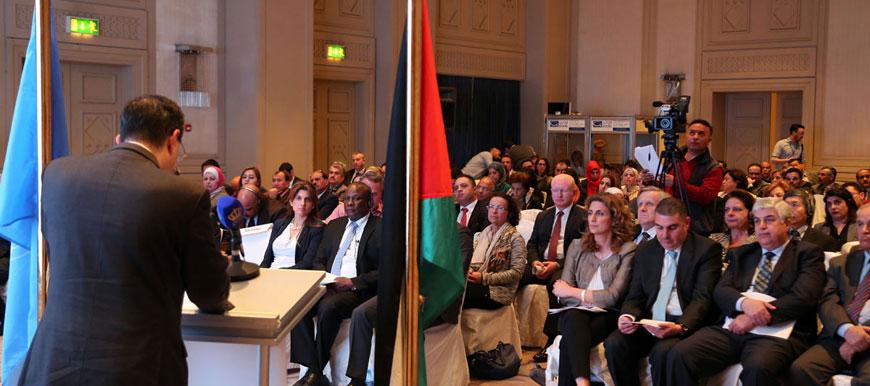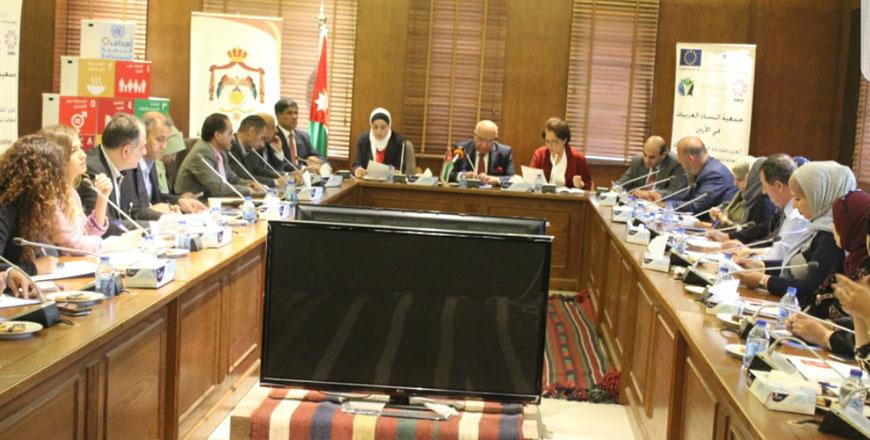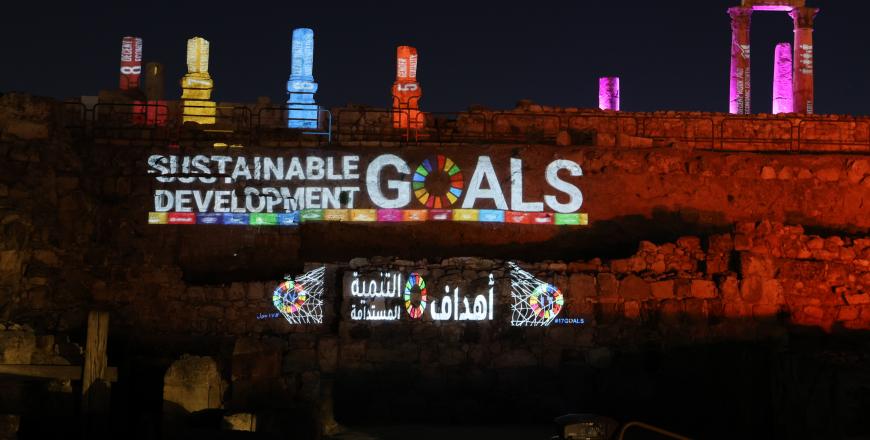You are here
Stakeholders discuss turning SDGs into regional policies
By Hana Namrouqa - Apr 25,2017 - Last updated at Apr 25,2017
AMMAN — Experts on Monday explored ways to apply the sustainable development goals (SDGs) to the local level, with a focus on water, energy and climate change.
Over 50 stakeholders from local, regional and international development institutions discussed ways to translate the international SDGs into tangible regional policies that meet the priorities of Jordan and the wider Arab region.
During a workshop exploring opportunities to implement the SDGs, organised by the WANA Institute and the Friedrich Ebert Stiftung, the sustainable development experts highlighted the need for an interdisciplinary approach which engages all elements of the society in order to succeed.
Muhammad Saidam, chief scientist at the Royal Scientific Society, indicated that, as some SDGs are broadly defined and intertwined, a well-articulated understanding of the synergies, trade-offs and mutual-benefits of the 17 SDGs and their 169 respective targets is necessary.
On September 25th 2015, countries around the world adopted a set of goals to end poverty, protect the planet and ensure prosperity for all, as part of a new sustainable development agenda. Each goal contains specific targets to be achieved over the next 15 years.
The SDGs, officially known as “Transforming our world: the 2030 Agenda for Sustainable Development”, comprise 17 global goals and 169 targets, according to web sources.
“Realising the SDGs requires multi-faceted efforts among governmental institutions and multidisciplinary scientific communities,” Saidam noted, indicating that implementation of the SDGs would provide numerous national opportunities.
As well as meeting the goals, such opportunities require establishing national capacities on science, technology and innovation through international programmes, building resilient infrastructure, promoting inclusive and sustainable industrialisation, and fostering innovation, the scientist said.
The SDGs’ implementation would also enhance collaboration amongst the Arab countries to meet common challenges, as well as accessing ecologically-friendly financing and technologies at a global level, he said.
Saidam suggested agreeing on a national list of priority SDGs’ and the establishment of a collaborative, inclusive and transdisciplinary system for attaining the goals.
“Jordanian scientists and policy professionals should work closely together to localise the 2030 Agenda; and national research efforts should be focused on serving SDG-related issues..,” he noted.
In a statement, event organisers highlighted what they said was a major limitation of the sustainable development concept, namely its claim to universality, indicating that the key question is how to translate the international goals into local policies.
Juliet Dryden, director of programme at WANA Institute, stressed the importance of exploring the opportunities for the SDGs in Jordan and the Arab region.
She noted that implementation policies should be tailored to meet the priorities of the region, adding that “they should come from within, rather than being imposed”.
The event also seeks to come up with recommendations on the national implementation of the water, energy and climate change strategies, while taking into consideration the socio-economic impact they have on people’s livelihoods and security.
Omar Shoshan, president of the Jordan Federation of Environmental NGOs, stressed the important role of civil societies in the country’s sustainable development, outlining the multiple challenges they face in the process.
Shoshan urged the government to fully tap the potentials of the 3,800 NGOs operating in the Kingdom, noting that they could serve as the government’s “right hand” in boosting the country’s socioeconomic development.
Related Articles
AMMAN — With notable success in the implementation of the Millennium Development Goals (MDGs), Jordan is gearing up for the implementation o
AMMAN — Minister of Political and Parliamentary Affairs and Minister of State Musa Maaytah on Monday said the government will cont
AMMAN — The Citadel on Sunday was lit up in colours highlighting the 17 Sustainable Development Goals (SDGs) during a reception hosted by Un


















